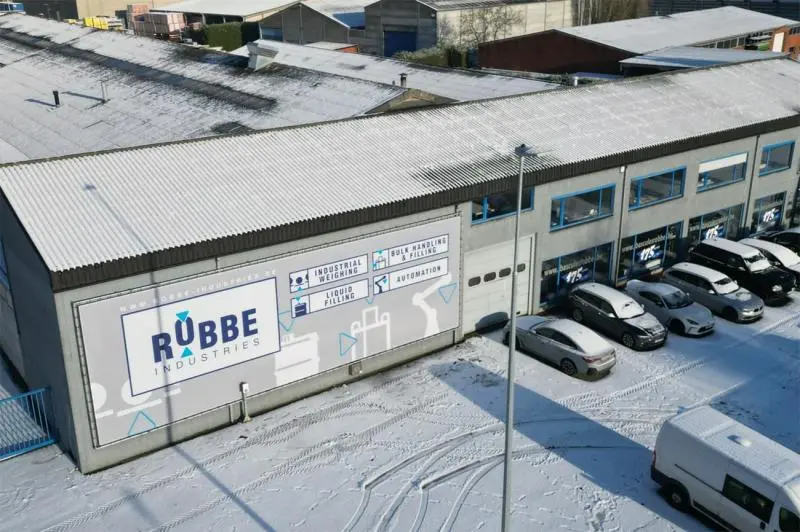Many industrial companies compete in similar markets. SEO can help you stand out by using targeted keywords, local optimization, and unique content to make your business more visible to the right audience.
Benefits of SEOIn today’s competitive digital landscape, industrial companies face unique challenges when it comes to online visibility. Unlike B2C businesses, the industrial sector often targets niche audiences, relies on long sales cycles, and deals with complex buyer journeys. This makes a well-optimized SEO strategy essential for capturing qualified leads and driving long-term growth.
Industrial buyers are increasingly turning to search engines for solutions. Studies show that over 70% of B2B buyers begin their purchasing journey with an online search. If your company isn’t visible on Google, you’re losing opportunities to competitors.
Benefits of SEO for Industrial Companies:
Increased Visibility: Rank higher for key terms like “custom conveyor belts” or “industrial water filtration systems.”
Lead Generation: Attract decision-makers and engineers looking for solutions to specific problems.
Credibility and Authority: A well-optimized website positions your company as an industry leader.
Cost-Effective Marketing: Generate long-term traffic without relying on paid ads. If I ever advise you to spend money on Google Ads its not me but my evil clone.
SEO for industrial companies comes with its own set of obstacles:
Niche Audience: Reaching technical buyers or procurement managers requires precise targeting. Luckily for you precise targeting is the thing we are good at ;).
Low Search Volume: Many industrial keywords have low search volumes, making keyword research critical.
Complex Products: Explaining intricate products or services in a way that appeals to both technical and non-technical audiences can be difficult.
Long Sales Cycles: Tracking ROI from SEO can take time due to extended decision-making processes.
Implementing the right SEO strategies is critical to reaching your target audience effectively. Industrial companies need to focus on strategies that align with their niche and cater to the specific needs of their buyers. Here are some of the most impactful approaches:
Keyword research is the foundation of any SEO strategy. Focus on terms your target audience searches for, including:
Product-specific terms (e.g., “high-performance conveyor belts”).
Problem-solving keywords (e.g., “how to improve manufacturing efficiency”).
Long-tail keywords with intent (e.g., “best industrial pump supplier in Europe”).
💡 Tip: Use tools like Google Keyword Planner or SEMrush to identify keywords with high relevance and manageable competition.
Content is king, even in the industrial sector. Develop content that answers your audience’s questions and showcases your expertise. Examples include:
Case Studies: Demonstrate how your products solve real-world problems.
Technical Guides: Provide detailed how-tos or explainers for complex topics.
Blog Posts: Cover industry trends, innovations, or best practices.
Local SEO: Optimize for local keywords like “industrial automation company Torhout” and claim your Google Business Profile.
Global SEO: If you serve international markets, use hreflang tags and create content tailored to specific regions.
A strong technical foundation is essential for ensuring that search engines can crawl and index your website effectively. For industrial companies, where product pages and technical specs are critical, technical SEO can make or break your strategy. Below are the most important areas to focus on:
Ensure your website is fully responsive. Many B2B buyers research on mobile devices during commutes or while on-site. A mobile-friendly website ensures that your visitors can easily access product specs, datasheets, and contact forms regardless of the device they use.
Industrial buyers won’t wait for a slow website. Compress images, enable caching, and use a CDN for faster load times. A fast website not only improves user experience but also positively impacts your search rankings.
Add structured data for products, reviews, and FAQs to enhance your appearance in search results. Schema markup helps search engines understand the content on your website better, which can lead to rich results and higher click-through rates.
Make it easy for users to find technical specs, datasheets, or contact information. Use clear menus and breadcrumb navigation to guide users to the right pages quickly. A well-structured site not only benefits users but also helps search engines crawl your site more effectively.
Security is a ranking factor for Google, and HTTPS ensures that your site is secure. It also builds trust with potential clients who are often sharing sensitive data or requesting detailed proposals. Ensure all pages on your site are encrypted with HTTPS.
To understand the impact of your SEO efforts, it’s crucial to track the right metrics. Measuring success in the industrial sector requires a combination of quantitative and qualitative data to reflect the niche nature of your audience.
Key Metrics to Track:
Organic Traffic: Monitor the growth of visitors from search engines. This metric indicates how well your SEO strategy is driving visibility.
Keyword Rankings: Keep an eye on your position for important industrial keywords. Gradual improvement here reflects the effectiveness of your optimization.
Lead Quality: Measure the quality of inquiries and quote requests generated through your website. High-quality leads indicate that your SEO strategy is targeting the right audience.
Conversion Rates: Track form submissions, quote requests, or contact inquiries to measure the tangible impact of your SEO strategy. Ensure conversion tracking is set up in Google Analytics.
Engagement Metrics: Review time on site, pages per session, and bounce rates to evaluate how effectively your website engages potential buyers.
SEO is an ongoing process. Use tools like Google Analytics, Google Search Console, and SEMrush to gather insights. Regularly review your data, identify areas for improvement, and adapt your strategy to align with evolving buyer needs and search trends. Read our guide for technical SEO here!
SEO is a powerful tool for industrial companies looking to stand out in a competitive market. By targeting the right keywords, creating valuable content, and optimizing your website’s technical performance, you can attract the right audience and drive measurable growth.
Many industrial companies compete in similar markets. SEO can help you stand out by using targeted keywords, local optimization, and unique content to make your business more visible to the right audience.
Benefits of SEOIt’s essential to explain technical products or services in a way that is clear without relying on jargon. Use simple language combined with visual aids like diagrams and videos. This ensures that both technical and non-technical visitors can understand the information. Our SEO Copywriting services can help translate your technical language into readable material.
SEO CopywritingLong-tail keywords are more specific and often have lower competition, making them ideal for the industrial sector. They target customers who are further along in their buying journey and help attract more qualified leads.
Keyword ResearchIf your company operates internationally, it’s important to adapt your website and content for different regions. Using hreflang tags and optimizing local keywords can help improve visibility in various countries and attract international customers.
International SEOIndustrial websites should ensure their product pages are well-optimized. This includes adding detailed product descriptions, using relevant metadata, optimizing images, and implementing structured data (schema markup) to help search engines better index the products.
Technical SEO Guide
SEO
Copywriting
After three months of SEO optimization for Robbe Industries, we are pleased to share the results achieved so far. The website has experienced a significant improvement in search engine visibility and traffic growth.
+30.000 impressions per month
+800 monthly visitors

SEO
Copywriting
After our SEO optimization, IC-S has seen a significant improvement in keyword rankings and web traffic. The strategies implemented have increased their online visibility, and the initial results are promising. More details coming soon!
+33.000 impressions
+490 keywords
At Rankup Digital, we understand that every business is unique. That’s why we offer tailored SEO strategies designed to meet your specific needs and goals. Get in touch with us and discover how we can take your business to new heights.
